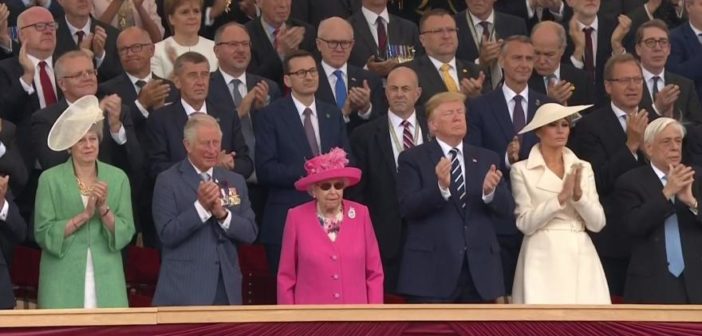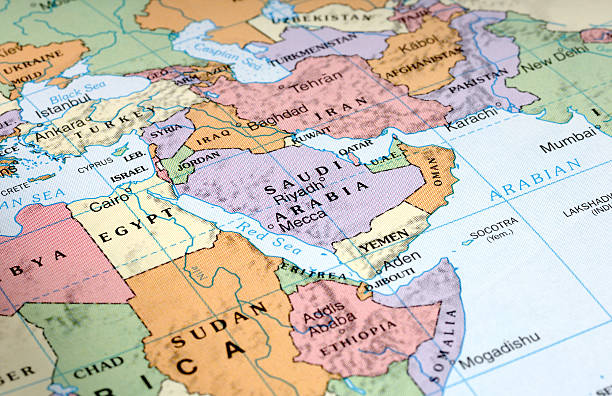
In the West, Syria, Yemen, Sudan, Venezuela and Jared Kushner’s Middle East peace plan took a back seat during the week. It was President Trump who dominated the headlines. Attention initially focused on the jabs he took at the Mayor of London and the Duchess of Sussex.
In responding to a question on Brexit during his joint press conference with Prime Minister May on June 4, 2019 President Trump said:
“… This is a great, great country and it wants its own identity. It wants to have its own borders. It wants to run its own affairs. This is a very, very special place. And I think it deserves a special place. And I thought maybe for that reason — and for others — but that reason, it was going to happen.”
And, he reiterated his commitment to a “phenomenal trade deal” between the US and the UK.
Whether he predicted Brexit a day before or after the referendum in 2016 has been a matter of debate but this is of secondary importance. However, if his words indeed reflect how he sees the EU, then there is a problem because all other members of the EU also have their own identity. Yet, they have come together to promote peace, European values and the well-being of their citizens. There is no question that Germans and the French also regard their country as great. Should they also follow the British and leave the EU?
This is why President Macron, underlining multilateralism, stated the following in his D-day remarks:
“We shall never cease to perpetuate the alliance of free peoples. That is what the victorious sides did, when they created the United Nations, the North Atlantic Treaty Organization. That is what a few years later the leaders of Europe did in bringing about the European Union…”
Twenty-two European countries are members of both NATO and the EU.
NATO celebrated its 70th anniversary on April 4 but transatlantic relations are also under strain. Europeans are now spending more on defense but the economic dimension, that is EU restrictions on third-country participation in European Union defense projects is causing frictions.
The Obama administration and others, the P5+1, negotiated a landmark multilateral nuclear deal with Iran. Among the P5+1 were three of Washington’s principal traditional allies. The world gave it its blessing. Regardless, President Trump withdrew the JCPOA and imposed sanctions not only on Tehran but on other countries having trade links to Iran as well. His administration is sparing no effort to forge an anti-Iran regional block. Many members of NATO and the EU disagree. What if Mr. Trump were to be succeeded by a Democrat in 2020? Will the US go back to the day before his inauguration?
Presidents Barack Obama and Raul Castro restored full diplomatic ties between the US and Cuba. Mr. Obama eased travel and financial restrictions. American commercial airlines began offering service between the countries for the first time in more than fifty years. The world, including Washington traditional allies, applauded these developments. Last week, the Trump administration imposed new restrictions on Americans going to Cuba.
Should leaders in Tehran and Havana resist US pressure for another year rather than give in? What if Washington had continued to engage them?
In October 2018, after more than a year of intense negotiations, the US, Canada and Mexico reached the United States-Mexico-Canada Agreement (USMCA) to update the North American Free Trade Agreement (NAFTA). But now, President Trump is threatening successively higher tariffs on Mexico if they don’t take steps to curb illegal border crossings. Perhaps Mexico should already have increased its immigration enforcement efforts. But doing this under threat now will set a bad example.
In brief, these are times of uncertainty in Washington’s relations with its traditional allies and President Trump remains determined to upend his predecessor’s initiatives which had received global support.
There is one last thing: differences in understanding of statecraft. In July 2017, White House adviser Ivanka Trump had briefly sat in her father’s chair at a G20 summit meeting in Hamburg prompting a string of reactions. During President Trump’s official talks with Prime Minister May, she was again at the table. And, Mr. Trump’s son-in-law Jared Kushner, senior advisor to the President, has recently cast doubt on the ability of Palestinians to govern themselves. An unfortunate development only weeks ahead of the announcement of the details of the peace plan bearing his signature.
People achieving such prominence simply because they are family members does not set a good example for countries striving for democracy. It only encourages autocrats.
In the East, a day before President Trump and many Western leaders attended the commemorative ceremonies marking the 75th anniversary of D-day, Russian and Chinese Presidents met in Moscow marking the 70th anniversary of diplomatic relations between the two countries. At their joint press conference on June 5, President Putin strongly underlined growing Chinese-Russian cooperation in diverse fields. (*) And this is what the usually reserved President Xi Jinping said:
“… President Putin and I have established close working relations and a strong friendship.
“We have met almost 30 times in the last six years. Russia is the most frequently visited foreign country for me and President Putin is one of my closest friends and a great colleague. This is the best reflection of the high level of bilateral relations and close strategic cooperation between China and Russia.
“… Chinese-Russian relations have reached an unprecedentedly high level. We now see new opportunities…
“The international situation is undergoing profound changes not seen in the past century. Peace and development remain the spirit of the times. However, protectionism and one-sided approaches are increasing, and the policy of force and hegemonism is intensifying. We have a long and difficult path to go before we arrive at peace and development.
“As leading world powers and permanent members of the UN Security Council, China and Russia will, in conjunction with the international community, show a sense of duty and resolutely protect the international system, under UN auspices, based on international law, and actively promote political settlements in the hotbeds of tension; we will protect the multilateral trade system, impart positive energy to an extremely difficult international situation, and make new contributions to building a common destiny for all of humankind…”
Perhaps this a good time for Washington to take stock of its foreign policy record in the last two and a half years.
(*) http://en.kremlin.ru/events/president/news/60672
Ali Tuygan, Ambassador (Ret’d) and former Undersecretary of the Turkish Foreign Ministry. The article is also published on his blog.









